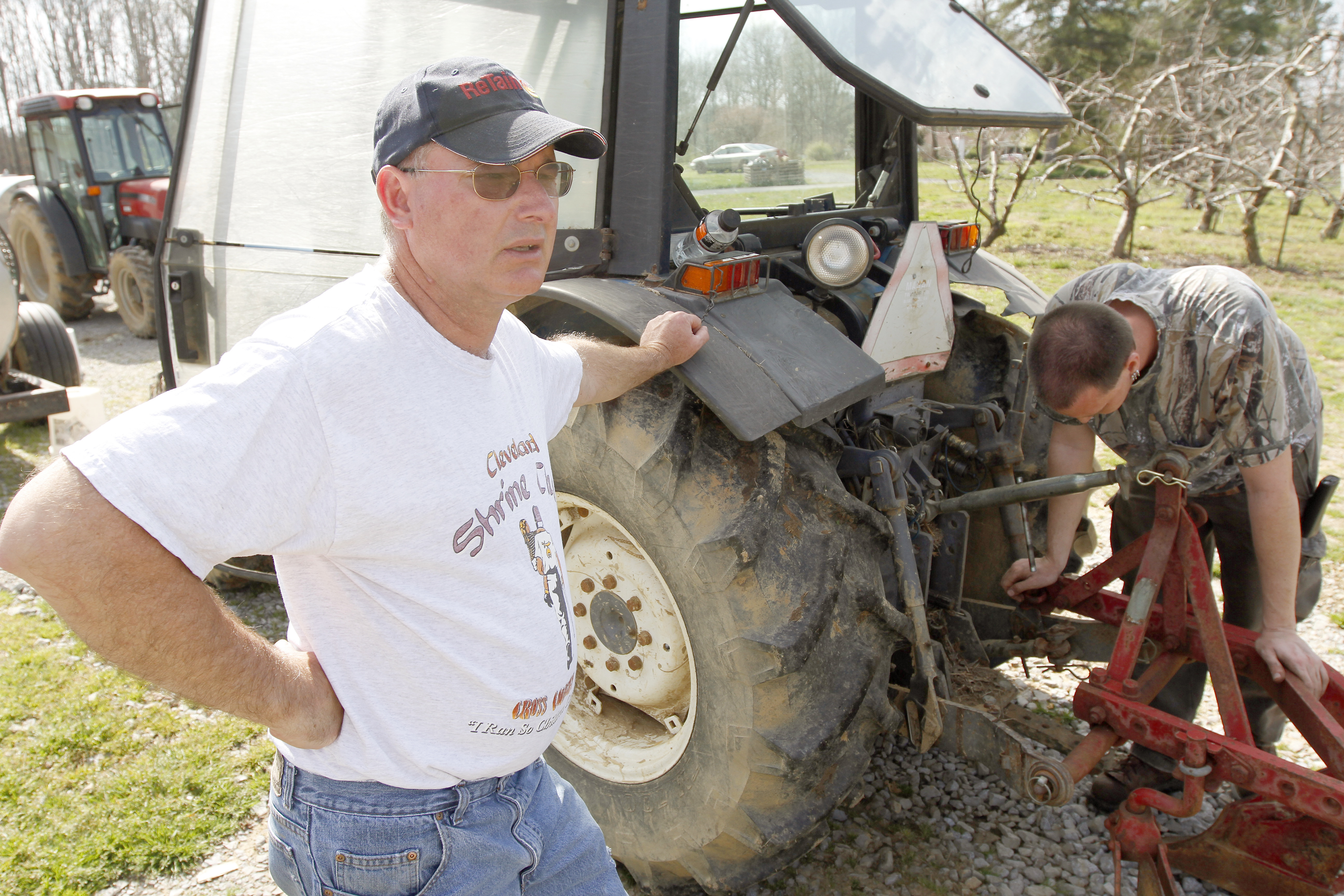DID YOU KNOW?• April 5: Average last freeze• April 19: Average last frostSource: National Weather Service
Chuck McSpadden tends nearly 20,000 trees at Apple Valley in Cleveland, Tenn. His trees are a week or two ahead of schedule after mild winter temperatures, but he still can't harvest until July.
And he won't feel safe until May 1, when the threat of a late-season frost should be gone.
Another farmer in the region, Wade Shultz, said fruit and vegetable growers have few choices when it comes to Mother Nature.
"There's not a lot we can do," he said. "We just take it as it comes." Shultz Farm Foods in Athens, Tenn., grows apples along with sweet corn, green beans and a few other crops.
After a winter marked by uncharacteristically warm temperatures, area farmers worry that the same weather patterns that caused their crops to mature early could destroy them in a spring freeze.
The length of a cold snap might matter even more than the temperature, Shultz said. Plants that could survive temperatures around freezing for a few hours might die in a prolonged chill.
"Barring a frost, we're expecting a good bloom," he said.
Christopher Roberts of Signal Mountain's Fairmount Orchards said the key issue is to get past the first few weeks of April.
The warm weather has moved things along faster than normal.
"As long as we don't get into any adverse weather now, we should be fine," Roberts said.
Meteorology may affirm farmers' apprehension. WRCB-Channel 3 Chief Meteorologist Paul Barys said April weather could be nasty. It's too early to make specific forecasts, he said, but using computers, meteorologists can perform an "analogue forecast" that compiles and compares weather conditions from years past.
Historically, after winters similar to this one, April is often cooler than usual, Barys said. The month also tends to be extreme one way or the other, though it's impossible to tell if this year will be extremely nice or extremely deadly to crops, he said.
Farmers somberly remember Easter of 2007, when a freeze decimated blooms after a winter similar to the one that just ended.
"We've got a strong nursery industry in this state, and they were devastated in '07," said Lee Maddox of the Tennessee Farm Bureau Federation. "The nursery folks have a big concern over a late frost."
This year, many farmers in West Tennessee already have planted their corn, reported Tom Womack of the Tennessee Department of Agriculture, and the trend is sweeping eastward. A good spring could give them a good yield, but a cold snap could pose a serious threat.
"Farmers know that it's a gamble [to plant] at this time of year," Womack said.
Healthier weeds and stronger pests are other consequences of a warm winter, he said, and while he would normally add fire risk, this year's precipitation has helped minimize that risk.
Winter precipitation could even help in the event of a spring frost, Maddox said, with the water in the ground insulating plant roots from the cold.
However, Maddox and Womack disagree on increased insect populations such as ants, mosquitoes, ticks and termites that plague farmers and ranchers.
"I don't think that there are more bugs. We just get them earlier," Maddox said.
Higher seasonal temperatures benefit in other ways. Womack said livestock were under less stress this winter and, with greener pastures, ranchers didn't have to feed them as much hay.
Even if temperatures drop, there's a chance that it could actually help farmers. Shultz said other farmers might think he's crazy, but temperatures just above freezing for a few hours could cull the smaller and weaker of his apple blooms, giving more room for the healthier ones.

